We Mean no Disrespect, but, Your Coffee Sucks
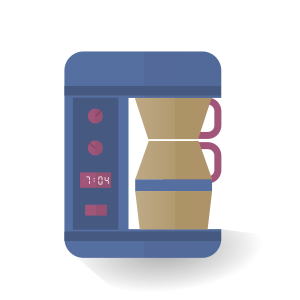
Or, maybe you think your coffee routine is perfectly fine and there's no need to change. But, we assure you, coffee aficionados like us aren't content or pleased with the way the masses consume coffee. Coffee could be so much better for you.
Why should you care? Well, let's start with all of the benefits of drinking coffee. Coffee is actually good for your health. There's a lot of research concerning our favorite little caffeine source that shows that a balanced intake of coffee is good for you. It can help you lose weight[*ref], reduces your risk for Type II diabetes[*ref], Alzheimer's[*ref], Parkinson's[*ref], colorectal cancer[*ref], and increases your lifespan[*ref]. It makes you smarter[*ref], improves your physical performance[*ref], improves memory[*ref], improves liver health[*ref], and contains a bevy of nutrients and antioxidants[*ref]. Plus, as everyone knows, it keeps you alert.[*ref]
But, all of these benefits are diminished by our typical consumption methods. Traditional coffee-making methods also makes our beloved beverage taste bad. After a while of drinking good coffee, you will develop a more refined palette (so, then you can be an aficionado of gourmet food and alcoholic beverages).
Finally, making good coffee at home can actually save you money. Depending on your current habits and how you go about making changes to your habits, you can save yourself money.
The Plan for Better Coffee
We're going to lay out the basic plan to get you started making better coffee at home. We'll call this becoming a "fundamental coffee aficionado." After you've conquered the basics, though, there are options to expand your coffee connoisseur expertise; we'll call that becoming an "advanced coffee aficionado."
The Big Secret

Here's the one trick to get you on the right path: hotter water. No kidding. Your typical drip coffee machine will heat water to between 160° F/65.6° C and 180° F/82.2°C. To effectively extract the most flavor from coffee grounds, the water should be about 204°F/95°C. Of course, depending on your elevation, you may not be able to get your water that hot. Once you get above 4250 ft./1295 m., water will boil before it gets hot enough. So, you are basically aiming for boiling water at moderate altitudes above 4250 ft./1295 m. and below 7750 ft./2362 m. Your coffee will still turn out great. (Above that altitude, you should consider some of the more "advanced" brewing methods.) Here's a table to help you know your boiling point.
Step by Step to Great Coffee
Of course, this is only one factor to making the perfect cup of coffee, but this one improvement is probably the most essential for maximizing flavor, nutrients, caffeine, and ultimate pleasure. But, you might be asking, "How do I brew with hotter water if my machine isn't hot enough?" Here are the steps:
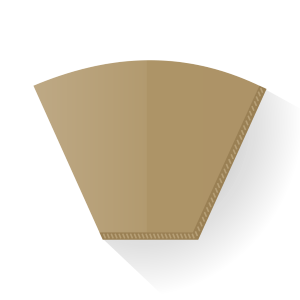
- Throw out that drip machine or pod brewer. (Or, you know, put it in a closet, sell it a garage sale, put it on e-bay, whatever). You are going to begin brewing your coffee with the "pour over" method. There are other methods, but you'll graduate into those later.
- Purchase a Clever Coffee Dripper.
- Purchase a Osaka 1 Liter Electric Gooseneck Drip Kettle for Pour Over Coffee.
- Purchase a package of Melitta Cone Coffee Filters Natural Brown #4.
- Get a decent cooking thermometer. Make sure it's the needle type so that you can take advantage of your kettle's features.
- If you don't have any roasted beans or grounds around (or, if you have really old, pre-ground coffee), pick up a package of coffee. We recommend a medium roast. If you grind your beans, stick with your current grind for now. We'll improve that later.
- Get a coffee mug that can handle 18 to 20 oz./532 to 591 ml. We'll save selecting the perfect mug for another time. If you don't have a mug large enough, pick up a good travel mug, or a carafe. Make sure the top of the carafe fits your clever coffee dripper.
- Brew the perfect cup.
- Get that kettle boiling.
- Get a single filter, fold the edges
- Place the filter into the Clever Coffee Dripper
- Fill the filter, while in the dripper, with water, then empty the water into the sink. This is a rinse. Be careful not to drop your filter into the sink, you want to keep the filter in the dripper. Give it a few shakes to get out the extra water.
- Put in your desired amount of grounds for 18 oz./473 ml. There's more to learn here, but we'll get into ground-to-water ratio later. For our purposes, enough grounds to fill 1/3 of the vertical space of the filter is sufficient.
- Use your thermometer to make sure the water is around 204°F/95°C (or boiling if you are above 4250 ft./1295 m. in elevation).
- Gently pour your hot water over the grounds, nearly filling the dripper.
- Gently stir the grounds with a spoon. Make sure any dry clumps of grounds are broken up. Be careful not to scrape the edge or bottom which could tear the filter and let the grounds through.
- Place the Clever Coffee Dripper lid over the top and let the coffee steep for 2-3 minutes. The longer it steeps, the richer the flavor, up to a point. Don't let it steep more than 6 or 7 minutes.
- Once it's done steeping, place the full Clever Coffee Dripper on top of the open mouth of your empty mug or carafe.
- After dripping into your mug, clean up by throwing away the filter and grounds, rinse or wash the Clever Coffee Dripper and leave it to dry.
You now have an improved cup of coffee. (Wait, my coffee tasted sour or bad!) But, there are a few more things to consider. But, before we move on, here are a few things not to do:
- Don't microwave the coffee.
- Don't put your coffee on a warmer or burner.
You now know the one key secret to making better coffee. But, you're not a coffee aficionado yet, you've only just begun.
Improving a Good Thing
We got you started above, but we took a few shortcuts to get you there. Depending on a lot of factors, you may not have noticed much of an improvement, or even thought your coffee got worse. We've tackled creating the perfect cup from only one vector, now it's time to dive into approaching perfection from other vectors.
Good Water
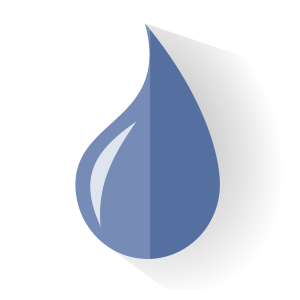
If you aren't blessed to live in a municipality with excellent water, or if you are on well water, you likely have hard or impure water. Coffee is 98% water. So, if your water doesn't taste great, your coffee won't taste great. Luckily, this is fairly easy to fix. Pick up a water filter system for your home. This could be a simple filtered pitcher, a sink-mount system, or a whole-house system. This will not only improve your coffee, but your life in general. We recommend cooking with filtered water and, of course, making your coffee with filtered water.
Good Beans
There are tons of online retailers that sell coffee beans. But, your best bet is to find a local roaster. Here are the things you need to know about selecting a good bean and using a good bean. Of course, when you get into the advanced stages of being a coffee aficionado, you can roast your own, but we'll save that for another time.
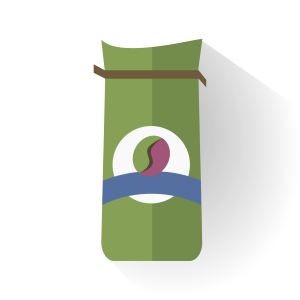
- Don't buy pre-ground coffee. Grinding coffee allows the flavors of the beans to bind with the molecules in the air. Coffee should be ground right before using it.
- Don't keep roasted coffee for more than a week. After about a week, the beans begin to stale and decay.
- Don't store your coffee in anything but an air-tight, metal, stone, or glass, coffee canister. Plastic will ruin your beans.
- Definitely don't ever store coffee in the fridge or freezer. We don't know why this silly tradition ever started.
- Don't let the beans sit out in the open or in a clear container. Light can stale coffee.
- Select beans from "fair trade" farms. If you're buying from a local roaster, make sure they select beans from fair trade growers. This ensures that you are getting your money's worth and getting a consistent bean.
- Don't begin with dark roasts. Medium or light roasts are good places to start. Over-roasting destroys most of the flavor and produces a charred, burnt, bitter taste. Some people like the French and Vienna roasts, but these roasts keep you from getting the most out of your coffee.
- Figure out which flavors you like the most. Different farms and different regions of the world produce beans with different "origin character" that affects the flavor. Do you like nutty? Chocolatey? Cinnamon-ny? Fruity? Honey? Your roaster should be able to describe the flavor profile. Just like wines, craft beers, and gourmet whiskey, there are attributes to taste that you will begin to learn. But, let's stick to the basics for now.
Good Grind
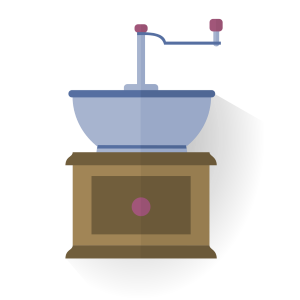
The finer the grind, the more surface area of the bean will be exposed to the water. This produces a richer flavor and extracts the most from the bean. For our purposes, you want a very fine grind without getting into espresso territory. This cannot be achieved with a blade grinder. If you have a blade grinder, or if you don't grind your own beans, do yourself a favor and pick up a burr grinder. Depending on your budget, and your willingness to turn a crank, you can pick up an excellent hand-grinder, or a nice automatic grinder.
Good Ratio

If there is too much grounds for the water, you will have "underextraction." If there are too much water for the grounds, you have "overextraction." Overextraction produces a bitter, dry coffee. Underextraction produces thin, weak, or sour coffee. For the large Clever Coffee Dripper, you want 32g of grounds. You can measure the amount of beans before you grind them as long as there isn't a lot of waste in your grinding process. If you don't have a kitchen scale, make sure you pick up a decent one and weigh those coffee grounds for a precise ratio.
Good Heat

If you pre-heat your Clever Coffee Dripper and your mug or carafe before brewing, you'll lose less heat through the brewing process. Pre-heating is simple, just fill the container with hot water and let it sit for 5 minutes before using it. This will heat the materials and prevent them from drawing heat from your coffee. Don't ever use a warmer, burner, or microwave to heat your coffee.
Good Drink
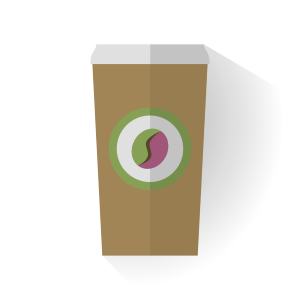
Enjoy that coffee quickly. Letting coffee sit will diminish the benefits you get out of the coffee. If you are brewing too much to drink quickly, cut your recipe in half, drink that, then brew again. If you need to travel, get a decent travel mug and know that time diminishes all things, including the benefits of good coffee.
Good Clean
Make sure your brewing equipment is clean. Dirt and build-up can slowly eat away at that perfect cup. Don't use harsh cleansers or soaps. Use basic dish soap and hot water. Keep your mug and carafe clean, too.
References
Weight Loss
- The acute effect of a caffeine-containing energy drink on mood state, readiness to invest effort, and resistance exercise to failure. Duncan MJ1, Smith M, Cook K, James RS.
- Caffeine and coffee: their influence on metabolic rate and substrate utilization in normal weight and obese individuals. K J Acheson, B Zahorska-Markiewicz, P Pittet, K Anantharaman, and E Jéquier
- Effects of caffeine ingestion on NE kinetics, fat oxidation, and energy expenditure in younger and older men P. J. Arciero, A. W. Gardner, J. Calles-Escandon, N. L. Benowitz, E. T. Poehlman
- Effects of caffeine on energy metabolism, heart rate, and methylxanthine metabolism in lean and obese women D. Bracco, J. M. Ferrarra, M. J. Arnaud, E. Jequier, Y. Schutz
Diabetes
- Coffee, Decaffeinated Coffee, and Tea Consumption in Relation to Incident Type 2 Diabetes Mellitus A Systematic Review With Meta-analysis Rachel Huxley, DPhil; Crystal Man Ying Lee, PhD; Federica Barzi, PhD; Leif Timmermeister; Sebastien Czernichow, MD, PhD; Vlado Perkovic, MD, PhD; Diederick E. Grobbee, MD, PhD; David Batty, PhD; Mark Woodward, PhD
- Coffee, tea, and incident type 2 diabetes: the Singapore Chinese Health Study1,2,3 Andrew O Odegaard, Mark A Pereira, Woon-Puay Koh, Kazuko Arakawa, Hin-Peng Lee, and Mimi C Yu
- Coffee and tea consumption and risk of type 2 diabetes S. van Dieren, C. S. P. M. Uiterwaal, Y. T. van der Schouw, D. L. van der A, J. M. A. Boer, A. Spijkerman, D. E. Grobbee, J. W. J. Beulens
- Coffee consumption and the incidence of type 2 diabetes in men and women with normal glucose tolerance: The Strong Heart Study Y. Zhangc, E.T. Lee, L.D. Cowan, R.R. Fabsitz, B.V. Howard
- Coffee Consumption and Risk of Type 2 Diabetes A Systematic Review Rob M. van Dam, PhD; Frank B. Hu, MD, PhD
Alzheimer's
- Does caffeine intake protect from Alzheimer's disease? L. Maia andA. De Mendonça
Parkinson's
- Coffee and tea consumption and the risk of Parkinson's disease Gang Hu MD, PhD, Siamak Bidel MD, Pekka Jousilahti MD, PhD, Riitta Antikainen MD, PhD, and Jaakko Tuomilehto MD, PhD
- Association of Coffee and Caffeine Intake With the Risk of Parkinson Disease G. Webster Ross, MD; Robert D. Abbott, PhD; Helen Petrovitch, MD; David M. Morens, MD; Andrew Grandinetti, PhD; Ko-Hui Tung, MS; Caroline M. Tanner, MD, PhD; Kamal H. Masaki, MD; Patricia L. Blanchette, MD, MPH; J. David Curb, MD, MPH; Jordan S. Popper, MD; Lon R. White, MD, MPH
- Prospective study of caffeine consumption and risk of Parkinson's disease in men and women Alberto Ascherio MD, DrPH, Shumin M. Zhang MD, ScD, Miguel A. Hernán MD, DrPH, Ichiro Kawachi MD, PhD, Graham A. Colditz MD, DrPH, Frank E. Speizer, and Walter C. Willett MD, DrPH
- A meta-analysis of coffee drinking, cigarette smoking, and the risk of Parkinson's disease Miguel A. Hernán MD, DrPH, Bahi Takkouche MD, PhD, Francisco Caamaño-Isorna PharmD, and Juan J. Gestal-Otero MD, PhD
Colorectal Cancer
- Coffee Consumption and the Risk of Colorectal Cancer Stephanie L. Schmit, Hedy S. Rennert, Gad Rennert, and Stephen B. Gruber
Mortality
- The Relationship of Coffee Consumption with Mortality Esther Lopez-Garcia, PhD; Rob M. van Dam, PhD; Tricia Y. Li, MD; Fernando Rodriguez-Artalejo, MD, PhD; and Frank B. Hu, MD, PhD
- Coffee consumption and risk of total and cardiovascular mortality among patients with type 2 diabetes S. Bidel, G. Hu, Q. Qiao, P. Jousilahti, R. Antikainen, J. Tuomilehto
Smarter
- Adenosine, Adenosine Receptors and the Actions of Caffeine Bertil B. Fredholm
- Caffeine and the central nervous system: mechanisms of action, biochemical, metabolic and psychostimulant effects Nehlig A, Daval JL, Debry G
- The impact of caffeine on mood, cognitive function, performance and hydration: a review of benefits and risks C. H. S. Ruxton
Physical Performance
- Caffeine and coffee: their influence on metabolic rate and substrate utilization in normal weight and obese individuals. K J Acheson, B Zahorska-Markiewicz, P Pittet, K Anantharaman, and E Jéquier
- Effects of caffeine ingestion on NE kinetics, fat oxidation, and energy expenditure in younger and older men P. J. Arciero, A. W. Gardner, J. Calles-Escandon, N. L. Benowitz, E. T. Poehlman
- Effects of caffeine on energy metabolism, heart rate, and methylxanthine metabolism in lean and obese women D. Bracco, J. M. Ferrarra, M. J. Arnaud, E. Jequier, Y. Schutz
- Effects of caffeine ingestion on metabolism and exercise performance. Costill DL , Dalsky GP , Fink WJ
- Caffeine and sports activity: a review. Nehlig A, Debry G
- Effects of caffeine ingestion on exercise testing: a meta-analysis. Doherty M, Smith PM.
Memory
- Post-study caffeine administration enhances memory consolidation in humans Daniel Borota, Elizabeth Murray, Gizem Keceli, Allen Chang, Joseph M Watabe, Maria Ly, John P Toscano & Michael A Yassa
- Is caffeine a cognitive enhancer? Nehlig A
Liver Health
- Coffee, Caffeine, and the Risk of Liver Cirrhosis Giovanni Corrao, PhD, Antonella Zambon, BSc, Vincenzo Bagnardi, BSc, Amleto D'Amicis, PhD, Arthur Klatsky, MD
- Coffee Intake and Mortality from Liver Cirrhosis Aage Tverdal, PhD, Svetlana Skurtveit, PhD
- Coffee, Cirrhosis, and Transaminase Enzymes Arthur L. Klatsky, MD; Cynthia Morton, MD; Natalia Udaltsova, PhD; Gary D. Friedman, MD
- Coffee Consumption and Risk of Liver Cancer: A Meta-Analysis Susanna C. Larsson, Alicja Wolk
- Coffee consumption and the risk of primary liver cancer: Pooled analysis of two prospective studies in Japan Taichi Shimazu, Yoshitaka Tsubono, Shinichi Kuriyama, Kaori Ohmori, Yayoi Koizumi, Yoshikazu Nishino, Daisuke Shibuya, and Ichiro Tsuji
Nutrients
- Intakes of Antioxidants in Coffee, Wine, and Vegetables Are Correlated with Plasma Carotenoids in Humans Arne Svilaas, Amrit Kaur Sakhi, Lene Frost Andersen, Tone Svilaas, Ellen C. Ström, David R. Jacobs Jr., Leiv Ose, and Rune Blomhoff
- Contribution of beverages to the intake of lipophilic and hydrophilic antioxidants in the Spanish diet. Pulido R, Hernández-García M, Saura-Calixto F
- Coffee and cardiovascular disease: In vitro, cellular, animal, and human studies Jennifer Stella Bonita, Michael Mandarano, Donna Shuta, Joe Vinson
- NutritionData: Coffee, brewed from grounds, prepared with tap water
Alertness
- Effects of caffeine on alertness as measured by infrared reflectance oculography Natalie Michael & Murray Johns & Caroline Owen & John Patterson
- Caffeine modulates attention network function Tad T. Brunyé, Caroline R. Mahoney, Harris R. Lieberman, Holly A. Taylor
